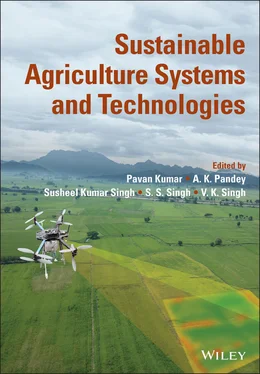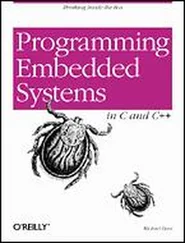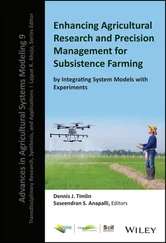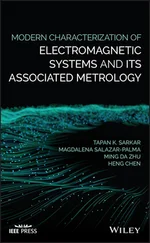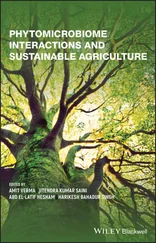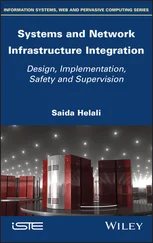Sustainable Agriculture Systems and Technologies
Здесь есть возможность читать онлайн «Sustainable Agriculture Systems and Technologies» — ознакомительный отрывок электронной книги совершенно бесплатно, а после прочтения отрывка купить полную версию. В некоторых случаях можно слушать аудио, скачать через торрент в формате fb2 и присутствует краткое содержание. Жанр: unrecognised, на английском языке. Описание произведения, (предисловие) а так же отзывы посетителей доступны на портале библиотеки ЛибКат.
- Название:Sustainable Agriculture Systems and Technologies
- Автор:
- Жанр:
- Год:неизвестен
- ISBN:нет данных
- Рейтинг книги:5 / 5. Голосов: 1
-
Избранное:Добавить в избранное
- Отзывы:
-
Ваша оценка:
- 100
- 1
- 2
- 3
- 4
- 5
Sustainable Agriculture Systems and Technologies: краткое содержание, описание и аннотация
Предлагаем к чтению аннотацию, описание, краткое содержание или предисловие (зависит от того, что написал сам автор книги «Sustainable Agriculture Systems and Technologies»). Если вы не нашли необходимую информацию о книге — напишите в комментариях, мы постараемся отыскать её.
A robust treatment of traditional and new techniques in sustainable agriculture Sustainable Agriculture Systems and Technologies,
Sustainable Agriculture Systems and Technologies
Sustainable Agriculture Systems and Technologies — читать онлайн ознакомительный отрывок
Ниже представлен текст книги, разбитый по страницам. Система сохранения места последней прочитанной страницы, позволяет с удобством читать онлайн бесплатно книгу «Sustainable Agriculture Systems and Technologies», без необходимости каждый раз заново искать на чём Вы остановились. Поставьте закладку, и сможете в любой момент перейти на страницу, на которой закончили чтение.
Интервал:
Закладка:
Amit K. SinghGSM Division ICAR‐IGFRI Jhansi, Uttar Pradesh, India
Anil Kumar SinghDivision of Land & Water Management ICAR‐Research Complex for Eastern Region Patna, Bihar, India
Anil Kumar SinghUniversity of Allahabad Senate House Campus Allahabad, Uttar Pradesh, India
Awani Kumar SinghCentre for Protected Cultivation and Technology Indian Agricultural Research Institute New Delhi, Delhi, India
H.P. SinghDepartment of Agricultural Economics Institute of Agricultural Sciences Banaras Hindu University Varanasi, Uttar Pradesh, India
Omkar SinghDepartment of Soil Science & Agril. Chemistry College of Agriculture, Sardar Vallabhbhai Patel University of Agriculture and Technology Meerut, Uttar Pradesh, India
Prashant Deo SinghGSM Division ICAR‐IGFRI Jhansi, Uttar Pradesh, India
Rakesh SinghDepartment of Agricultural Economics Institute of Agricultural Sciences Banaras Hindu University Varanasi, Uttar Pradesh, India
R.K. SinghDivision of Agronomy ICAR‐IARI New Delhi, India
Ram Kumar SinghDepartment of Natural Resources TERI School of Advanced Studies New Delhi, India
Rudra Pratap SinghCollege of AgricultureAcharya Narendra Dev University of Agriculture and Technology Ayodhya, Uttar Pradesh, India
Shashank SinghDepartment of Agricultural Biotechnology Sardar Vallabhbhai Patel University of Agriculture and Technology Meerut, Uttar Pradesh, India
Susheel Kumar SinghDepartment of Soil Science and Agricultural Chemistry College of Agriculture Rani Lakshmi Bai Central Agricultural University Jhansi, Uttar Pradesh, India
V.K. SinghDivision of Agronomy ICAR‐ Central Research Institute for Dryland Agriculture Hyderabad, Telangana, India
Prem K. SundaramDivision of Land & Water Management ICAR‐Research Complex for Eastern Region Patna, Bihar, India
Aqil TariqState key Laboratory of Information Engineering in Surveying Mapping and Remote Sensing (LIESMARS) Wuhan University Wuhan, China
Ram Sewak TomarCollege of Horticulture and Forestry Rani Lakshmi Bai Central Agricultural University Jhansi, Uttar Pradesh, India
Keshav TyagiForest Research Institute Deemed to be University (FRIDU) Dehradun, India
Pravin Kumar UpadhyayDivision of Agronomy ICAR‐ Indian Agricultural Research Institute New Delhi, Delhi, India
Preface
Technological change has been the major driving force for increasing agricultural productivity and promoting agriculture development across the globe. In the past, the choice of technologies and their adoption was to increase production, productivity, and farm incomes. However, with changing agrarian economy, food habits, and climate scenario, demand for nutritious food and ecofriendly cultivation practices are becoming a major concern. Over many decades, policies for agriculture, trade, research and development, education, and training have been strong influences on technology adoption, agricultural production, and farm management. Agriculture is one of the most important sources of food nutrition, income, and employment in most of the developing world, including India. With passes of time, predominant rice, wheat, and other grains producing tracts have started showing symptoms of fatigue due to several eco‐physical and socioeconomic constraints. Effects are witnessed as frequent drought occurrence, soil carbon depletion and degradation, and reduced farm income. Under these circumstances, cultivators, advisors, and policy makers are facing technological complexities, which are either available or under development, causing pressure on agricultural research and advisory services. Although, few attempts have been made in establishing the role of climate on crop productivity in current and future scenarios. But it does not consider non‐climatic factors such as land use, technological advancement, change in irrigation pattern, soil fertility, and crop destruction due to insects, pests and diseases. Integrating all these may become robust tools for decision‐ and policy‐making to prioritize the vulnerable zones that need immediate attention.
This book covers significant and updated contribution in the field of sustainable agriculture systems and technologies linked to climate change. The updated knowledge from countries like India, Indonesia, Japan, Sri Lanka, Iran, and China, is presented in this book through selected case studies for major thematic areas that have basic preliminary concepts and elaborates the scientific understanding of the relationship between sustainable agriculture systems and climatic drivers. The book has been separated into four major themes, each having subject‐specific chapters to develop the concept and to present the findings in a lucid way that is useful for a wide range of readers. While the range of applications and innovative techniques is constantly increasing, this book provides a summary of key case studies to provide the most updated information. Chapters incorporate multisource data and information that offer critical understanding to explain the causes and effects of environmental changes linked to sustainable agriculture systems. This book will be of interest to researchers and practitioners in the field of agriculture, remote sensing, geographical information, and policy studies, etc., related to agricultural systems. Also, researchers, graduate, and postgraduate students of various disciplines, planners, and policy makers will find valuable information in this book. We believe that the book will be read by people with a common interest in sustainable development and other diverse backgrounds within earth observation.
The scientific quality of the book was ensured by a rigorous review process where leading researchers from India, Indonesia, Japan, Sri Lanka, Iran, and China, participated to provide constructive comments to improve the chapters. Due to the confidentiality of the review process, we are unable to provide their name; however, we are deeply indebted and thankful for their voluntary support. On behalf of the team of authors, we express our gratitude to the entire crew of Wiley for all kind of assistance to make this successful endeavor.
Pavan Kumar A. K. Pandey Susheel Kumar Singh S. S. Singh V. K. Singh
About the Editors
Dr. Pavan Kumaris an Assistant Professor at the College of Horticulture and Forestry, Rani Lakshmi Bai Central Agricultural University, Jhansi, Uttar Pradesh, India. He obtained his PhD degree from Faculty of Natural Sciences, Jamia Millia Islamia, New Delhi, India. He did a BSc (Botany) and MSc (Environmental Science) from Banaras Hindu University, Varanasi, India, and subsequently obtained his master's degree in Remote Sensing (MTech) from Birla Institute of Technology, Mesra Ranchi, India. His current research interests include resilient agriculture and climate change studies. He is recipient of Innovation China National academy award for Remote Sensing. Dr. Kumar has published 50 research papers in international journals and authored several books. He has visited countries including USA, France, the Netherlands, Italy, China, Indonesia, Brazil, and Malaysia for various academic/scientific assignments, workshops, and conferences. Dr. Kumar is a member of the International Associations for Vegetation Science, USA, and Institution of Geospatial and Remote Sensing, Malaysia.
Dr. A.K. Pandeyis currently Dean at the College of Horticulture and Forestry, Rani Lakshmi Bai Central Agricultural University, Jhansi, Uttar Pradesh, India. Prior to joining RLBCAU, Dr. Pandey served for almost six years as Dean, College of Horticulture and Forestry, Pasighat, Arunachal Pradesh, under Central Agricultural University, Imphal, Manipur, India. He is an ARS Scientist of 1985 batch. Dr. Pandey obtained his MSc (Ag.) and PhD. degrees in Horticulture from C.S. Azad University of Agriculture and Technology, Kanpur. Dr. Pandey participated in the 1st International Post Graduate Course on Protected Agriculture in Arid and Semi‐arid Region at Hebrew University, Jerusalem, Israel. He has published more than 80 research papers, 167 popular articles and review articles in journals of national and international repute. Dr. Pandey has authored 14 books and has participated in more than 70 national conferences/seminars and symposia and in the position of Organizing Secretary, organized several national seminars/symposia and one International Symposium on Minor Fruits, Medicinal & Aromatic Plants (ISMF, M&AP) at Pasighat, Arunachal Pradesh. Dr. A.K. Pandey has been conferred several awards and honors for his distinguished academic contributions. Hon'ble President of India has conferred on him the prestigious Rajiv Gandhi Gyan‐Vigyan Purskar for his book Dalhani Sabjiya during 2012. Defense Research and Development Organization (DRDO) honored him four times for his significant contribution. Dr. Pandey is a prolific writer and for his significant contribution, Scientific and Applied Research Centre, Meerut, India has conferred on him the Outstanding Authorship in Science and Technology Award (2010). He was also awarded the Life Time Achievement Award (2016) by BSRD, Allahabad. Dr. Pandey is a board member of a number of Scientific Societies and Academic panels. He is a Fellow of Indian Society of Vegetable Science (ISVS), Varanasi and Society of Biological Sciences and Rural Development, Allahabad, India.
Читать дальшеИнтервал:
Закладка:
Похожие книги на «Sustainable Agriculture Systems and Technologies»
Представляем Вашему вниманию похожие книги на «Sustainable Agriculture Systems and Technologies» списком для выбора. Мы отобрали схожую по названию и смыслу литературу в надежде предоставить читателям больше вариантов отыскать новые, интересные, ещё непрочитанные произведения.
Обсуждение, отзывы о книге «Sustainable Agriculture Systems and Technologies» и просто собственные мнения читателей. Оставьте ваши комментарии, напишите, что Вы думаете о произведении, его смысле или главных героях. Укажите что конкретно понравилось, а что нет, и почему Вы так считаете.
